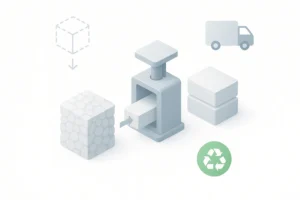What are the key advantages of the impact of EPS densification on recycling and utilization?
EPS densification plays a crucial role in recycling by compressing bulky foam into compact blocks, improving transportation, reducing costs, and enabling high-quality reuse. This article explores the key benefits of EPS densification and how it supports sustainability and a circular economy.

